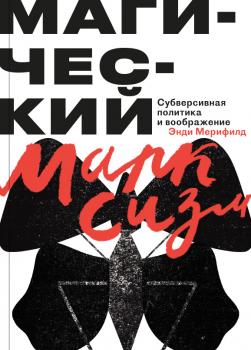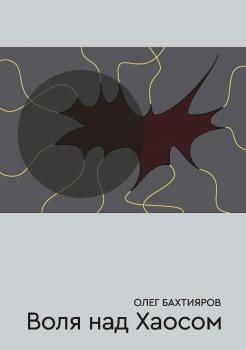ТОП просматриваемых книг сайта:
Философия
Различные книги в жанре Философия, доступные для чтения и скачиванияАннотация
Для удобства было издано отдельно главное смотри_название, чтобы человек мог в одном месте прочитать главное из большой статьи. А это большое приложение, все детали.
Диктатура общества. Восьмая книга «Сотовой концепции самоуправления социума» - Николай Анатольевич Панов
Аннотация
Публикую Идеологию наступающего мироустройства.Это практическое пособие для молодёжи и политиков-практиков. Здесь о том, как принимают Властные решения и как меняют Власть (крайне просто и в рамках Закона, если этого хочет социум, общество, община. Без насилия, протестов, митингов и пикетов).Здесь о том, как самому стать Властью и человеком Власти, не отвлекаясь от основного занятия
Аннотация
Публикую Идеологию наступающего мироустройства.Это практическое пособие для молодёжи и политиков-практиков. Здесь о том, как принимают Властные решения и как меняют Власть (крайне просто и в рамках Закона, если этого хочет социум, общество, община. Без насилия, протестов, митингов и пикетов).Здесь о том, как самому стать Властью и человеком Власти, не отвлекаясь от основного занятия.
Аннотация
Энди Мерифилд вдыхает новую жизнь в марксистскую теорию. Книга представляет марксизм, выходящий за рамки дебатов о классе, роли государства и диктатуре пролетариата. Избегая формалистской критики, МериПеревод с английского – филд выступает за пересмотр марксизма и его потенВладислав Софронов циала, применяя к марксистскому мышлению ранее Оформление – неисследованные подходы. Это позволяет открыть ноАнна Сухова вые – жизненно важные – пути развития политического активизма и дебатов. Читателю открывается марксизм XXI века, который впечатляет новыми возможностями для политической деятельности.
Аннотация
Попытки реального конструирования будущего России – это необходимое условие сохранения ее жизни. Задача не в том, чтобы построить еще одну модель для понимания, задача – создать средства управления историей более мощные, чем те силы, которые управляют историей до сих пор.
Россия должна продолжить свое историческое существование как самостоятельная цивилизация. Для этого необходим сверхпроект, выходящий за пределы пространства ранее реализованных проектов – проект Иного по отношению к существующему и ранее существовавшему. Именно эта тема рассматривается в книге «Воля над Хаосом» выдающегося ученого и практика Олега Георгиевича Бахтиярова.
Предельное понимание воли – порождающая активность, у которой нет оснований, способность действовать и порождать цели и смыслы из себя, без внешней причины. Активность, к которой применимы слова о свободе воли и которая открывается только ясному сознанию, реальность, которая выше языка, мотиваций и усилий. Это и есть самое ценное достояние человека, Воля с большой буквы.
Проекция Воли на политическое поле порождает представление о волевом управлении – волюнтократии, – противопоставленном как хаотическому произволу тиранических режимов, так и нормократии – господству правил и законов. Волюнтократия – это Иное, это власть пробужденной Воли. Волюнтократия – это цель Перехода к Иному и средство такого Перехода. Задача – волевое управление культурными, социальными и политическими процессами, управление и Хаосом, и Правилами, превращение жизни-как-реакции в жизнь-как-активность. Сознание становится активным.
Первая книга в серии «Ветер Иного» издательской группы «Традиция».
Аннотация
Более 30 лет назад «Вторая смена», написанная американским социологом Арли Хокшилд, задала направление будущих дискуссий и исследований гендерного разделения труда на десятилетия. В этой книге Хокшилд рассмотрела, что на самом деле происходит в семьях, где оба партнера – муж и жена – работают. Она обнаружила, что женщины в среднем работают приблизительно на 15 часов в неделю больше, чем мужчины. За год у них набегает лишний месяц круглосуточной работы. Если женщина бездетна, то на работу по дому она тратит больше времени, чем мужчина. Если у нее есть дети, то она тратит больше времени и на них, и на дом. Подобно тому как между мужчинами и женщинами существует разрыв в размере заработной платы на рабочем месте, дома между ними существует «разрыв в досуге». Большинство женщин отрабатывают одну смену в офисе или на заводе и «вторую смену» дома.
Книга адресована социологам, психологам, социальным философам и всем, кого интересуют проблемы взаимоотношений в семье.
Аннотация
Emmanuel Levinas (1906-1995) was a French philosopher known for his radical ethics and for his contribution to Jewish thought in his commentaries on Talmudic sources. In Levinas's Politics , Annabel Herzog confronts a major difficulty in Levinas's philosophy: the relationship between ethics and politics. Levinas's ethics describes the encounter with the other, that is, with any other human being. For Levinas, the face-to-face encounter is a relationship in which the ego is commanded by a transcendent and unquestionable order to take responsibility for the other person. Politics, on the other hand, presupposes at least three people: the ego, the other, and any third party. Among three people, nothing can be transcendent; on the contrary, everything must be negotiated. Against the conventional view of Levinas's conception of the political as the interruption and collapse of the ethical, Herzog argues that in the Talmudic readings, Levinas constructed politics positively. She shows that Levinas's Talmudic readings embody a pragmatism that complements, revises, and challenges the extreme ethical analyses he offers in his phenomenological works— Totality and Infinity , Otherwise than Being , and Of God Who Comes to Mind . Her analysis illuminates Levinas's explanations of the relationship between ethics and politics: ethics is the foundation of justice; justice contains a necessary violence that must be moderated by mercy; and justice, general laws, and national aspirations must be linked in an attempt to «improve universality itself.»
Аннотация
In 1484, humanist philosopher and theologian Marsilio Ficino published the first complete Latin translation of Plato's extant works. Students of Plato now had access to the entire range of the dialogues, which revealed to Renaissance audiences the rich ancient landscape of myths, allegories, philosophical arguments, etymologies, fragments of poetry, other works of philosophy, aspects of ancient pagan religious practices, concepts of mathematics and natural philosophy, and the dialogic nature of the Platonic corpus's interlocutors. By and large, Renaissance readers in the Latin West encountered Plato's text through Ficino's translations and interpretation. In Plato's Persona , Denis J.-J. Robichaud provides the first synthetic study of Ficino's interpretation of the Platonic corpus. Robichaud analyzes Plato's works in their original Greek and in Ficino's Latin translations, as well as Ficino's non-Platonic writings and correspondence, in the process uncovering new aspects of Ficino's intellectual work habits. In his letters and works, Ficino self-consciously imitated a Platonic style of prose, in effect devising a persona for himself as a Platonic philosopher. Plato's dialogues are populated with a wealth of literary characters with whom Plato interacts and against whom Plato refines his own philosophies. Reading through Ficino's translations, Robichaud finds that the Renaissance philosopher seeks an understanding of Plato's persona(e) among all the dialogues' interlocutors. In effect, Ficino assumed the role of Plato's Latin spokesperson in the Renaissance. Plato's Persona is grounded in an extensive study of scholarship in Renaissance humanism, classics, philosophy, and intellectual history, and contextualizes Ficino's intellectual achievements within the contemporary Christian orthodox view of Platonism. Ficino was an influential figure in the early Italian Renaissance: the key intermediary between Greek and Latin, and between manuscript and print, giving voice to Plato and access to the ancient frameworks needed to interpret his dialogues.
Аннотация
Fragile Minds and Vulnerable Souls investigates the creation of «obscene writings and images» as a category of print in nineteenth-century Germany. Sarah L. Leonard charts the process through which texts of many kinds—from popular medical works to stereoscope cards—were deemed dangerous to the intellectual and emotional lives of vulnerable consumers. She shows that these definitions often hinged as much on the content of texts as on their perceived capacity to distort the intellect and inflame the imagination. Leonard tracks the legal and mercantile channels through which sexually explicit material traveled as Prussian expansion opened new routes for the movement of culture and ideas. Official conceptions of obscenity were forged through a heterogeneous body of laws, police ordinances, and expert commentary. Many texts acquired the stigma of immorality because they served nonelite readers and passed through suspect spaces; books and pamphlets sold by peddlers or borrowed from fly-by-night lending libraries were deemed particularly dangerous. Early on, teachers and theologians warned against the effects of these materials on the mind and soul; in the latter half of the century, as the study of inner life was increasingly medicalized, physicians became the leading experts on the detrimental side effects of the obscene. In Fragile Minds and Vulnerable Souls , Leonard shows how distinctly German legal and medical traditions of theorizing obscenity gave rise to a new understanding about the mind and soul that endured into the next century.










